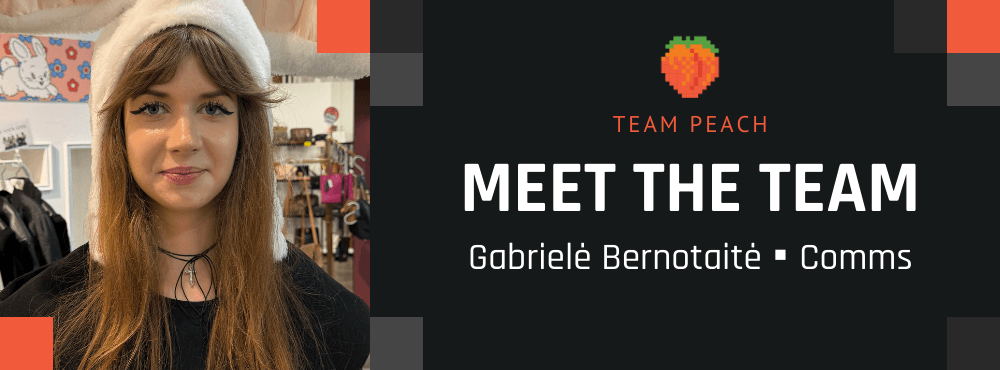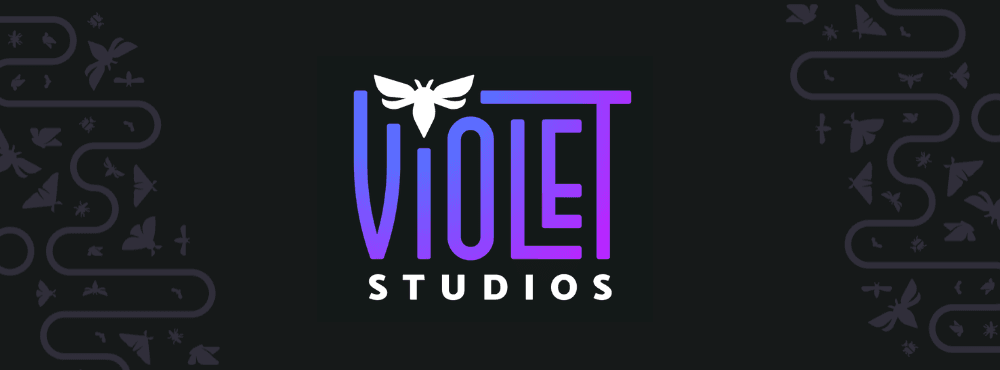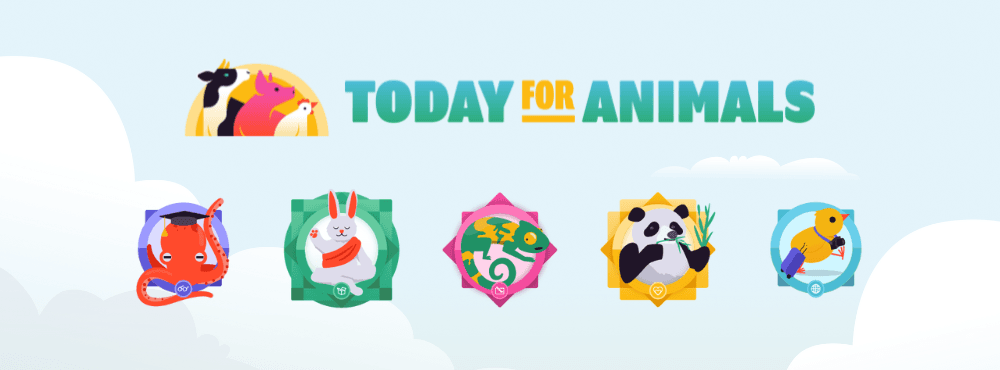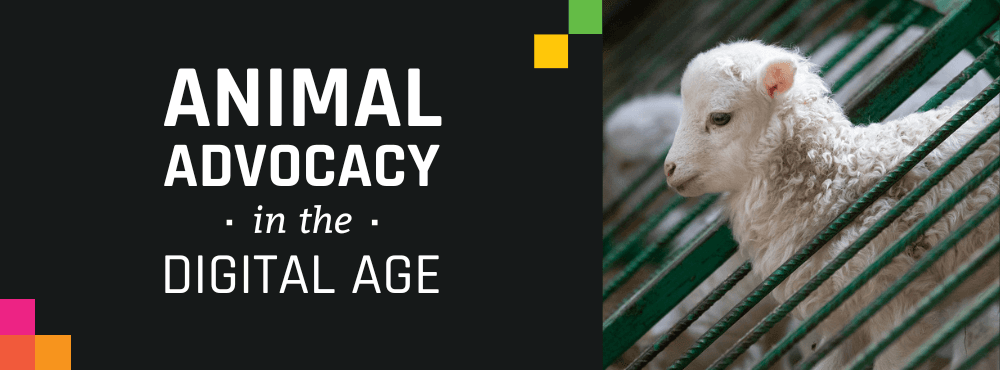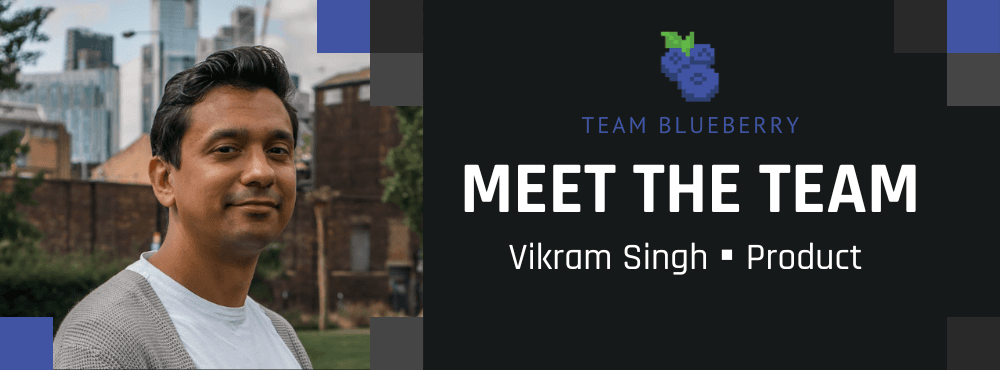
Meet the Vegan Hacktivists: Vikram Singh
Vikram Singh, originally from Vancouver and now based in London, lends his skills as a Product Manager to Vegan Hacktivists (VH) to ensure all of our products and services are as useful, usable, and impactful as possible to support the cause of animals. Join us for some tech and philosophy with our resident product expert and learn more about what drives him and his work, as well as what his favourite London dives are.
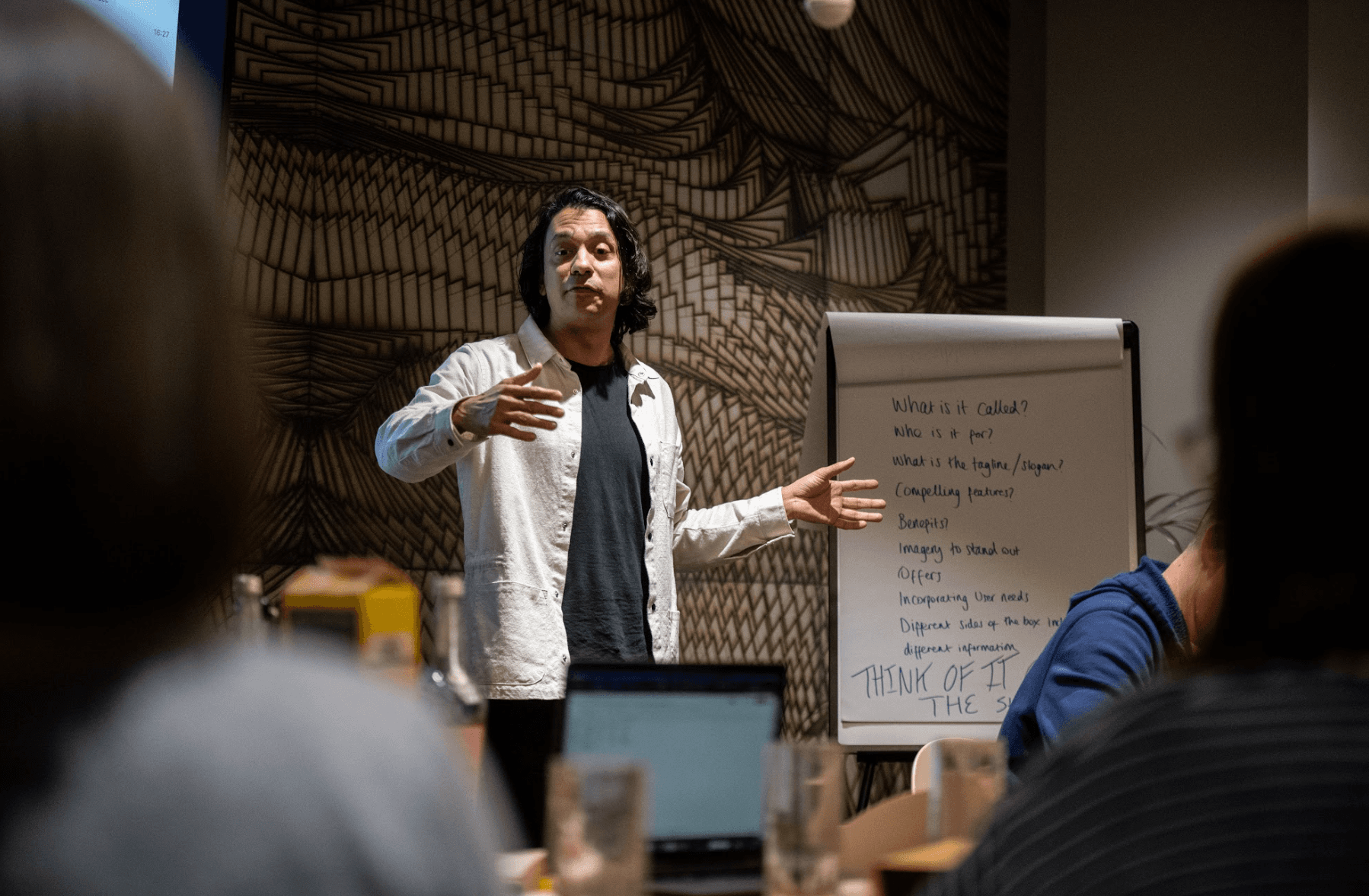
Hi Vik, can I call you Vik? When did you join Vegan Hacktivists and how did you end up here?
Yes of course, Vik is totally fine! I joined about one and half years ago in late 2021. I know it sounds cliche, but I wanted to make a difference so I Googled “vegan volunteering” and found Vegan Hactivists. I applied and Kate Rodman, our Design Director, got back to me at the time. We discussed the importance of product thinking, user experience (UX), validating concepts and evaluating products. I started volunteering as a UX designer, and eventually, Kate felt that I had a unique skill set and had value I could bring to the product creation process so I joined the ranks of the core leadership team.
What do you enjoy the most about being part of the VH team?
I really enjoy being able to use my skills in a way that makes an impact in the world, in a positive way. It’s great to work with like-minded people and to be part of a community with such strong values. The movement is so positive, and we get to try new ideas thanks to the flat hierarchy. Given this structure, I try to ask questions that provoke a constructive response rather than tell people what to do.
You’re doing some really interesting work on a project in collaboration with The Open Sanctuary Project at the moment. How would you describe Open Sanctuary Dashboard (OSD) and can you tell us a bit more about this project and what you find particularly exciting about it?
I’d describe it as a sanctuary management platform for the day-to-day running and monitoring of its staff and residents. We did a lot of research for this project, mainly in the form of surveys that we sent out to sanctuaries but also by speaking to users and sanctuary owners. We received 50 responses and found that sanctuaries needed tools to manage many different aspects of their residents. Many of these sanctuaries currently use paper for this work!
Every sanctuary is different, with no real consistency in what they need so we had to fill a number of use cases. We wanted to avoid pigeonholing the management of residents to just suit chickens for example, so the platform has to be highly and completely customisable, which is where a lot of the complexity stems from. It has to suit any type of animal, of any size, and track them day to day. It has to be very powerful, yet also very easy to use.
I’m an advocate of human-centred design, which involves, among other things, a test-and-learn approach. This means that we acknowledge that we will get some things wrong in terms of all of these complexities but, on the other hand, we build in processes to constantly iterate on the tools and services we create.
Ultimately, I love that it’s hugely customisable and visually appealing, unlike many other alternatives, and think that it really will provide a lot of useful features to sanctuaries, which they cannot get elsewhere.
What are some challenges you've encountered with the project? Whether from a user experience (UX) or product management (PM) point of view?
To be honest, it’s been a lot of work. I’ve been working on it for five months now. It’s much more complex than I’d anticipated. But it’s a necessary complexity as we have many data structures, with many complex causal relationships. There are a ton of different connections: residents can have tasks with multiple labels, tasks can be recurring, residents can appear on different events and so on and so forth. It was also challenging to synthesise all the user research data to understand what sanctuaries were saying, what they wanted, and ultimately to create an effective design solution to meet these complex, often contradictory, needs.
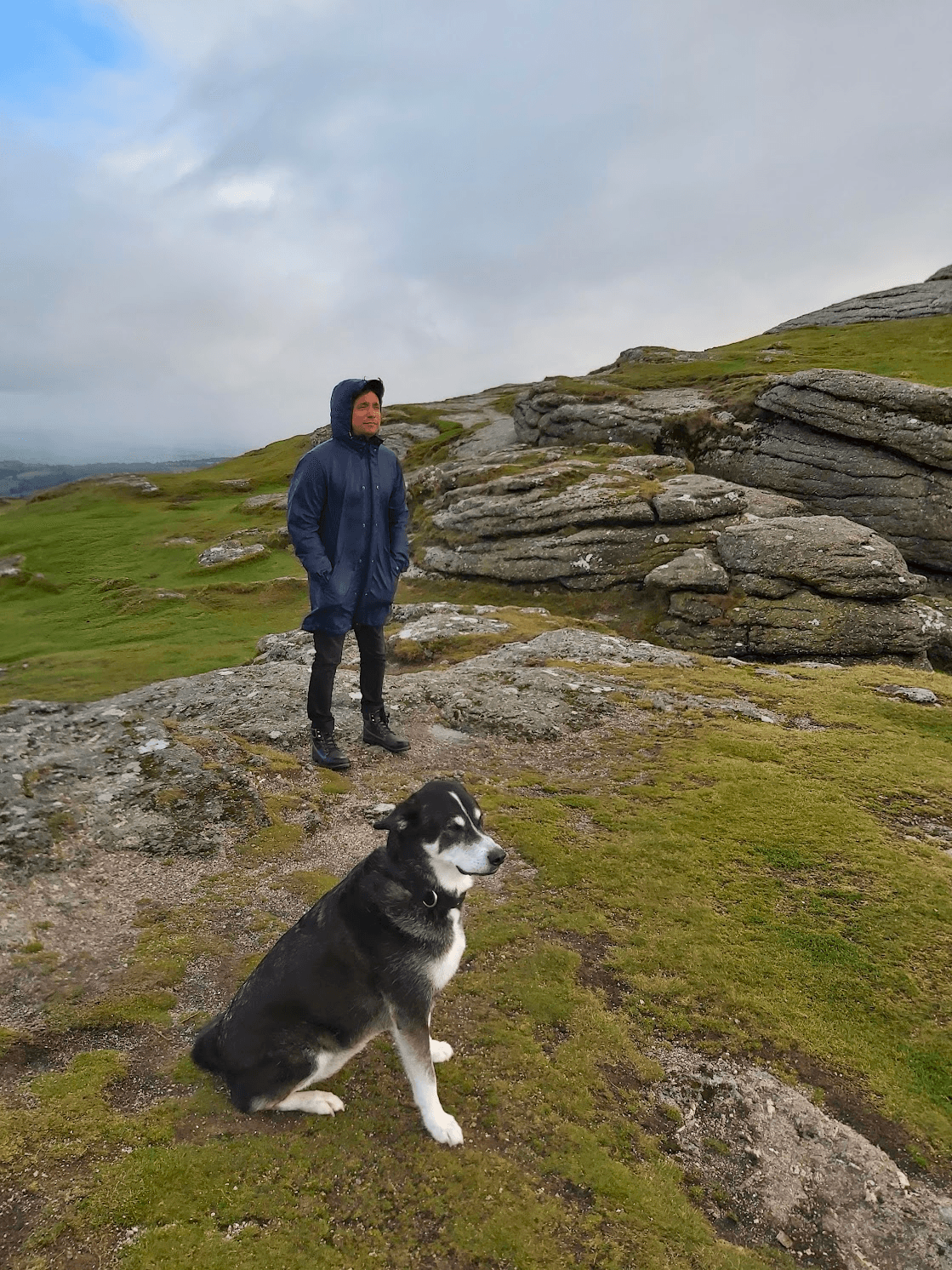
What made you move from Canada to London?
I was working in comms for a business and I really wasn’t fulfilled. Most of the projects we worked on were quite boring, but I came across a UX project that really resonated with me. One day in the shower I decided I wanted to go do my Master's in London. It was the most decisive I have ever been! I have a British passport from my mother’s side and I think secretly, I was always looking for somewhere else to go. Vancouver is great, the people are friendly but it’s not the most exciting and I wasn’t taking advantage of the natural beauty that surrounds it. London’s vibrancy, all the events and different cultures, on the other hand, was really appealing. So, about eight years ago, I started a Master’s degree in Human Computer Interaction (HCI) at City University of London and I loved it. It immediately aligned with what I was looking for, and combined art, design and philosophy. Now, my partner and I live in East London with our dog Bella who we shipped over.
You must get a lot of job satisfaction. In your professional life you lead the Design team at Lightful, a company which strives for social and environmental change. Can you tell us a bit more about that and your thoughts on how veganism affects environmental and social good?
Yeah, it's a really cool company that builds technologies and learning programs to support digital and fundraising skills for not-for-profit organisations (NFPs), charities, global non-governmental organisations (NGOs) and foundations. We build the technology and I drive the design efforts, and manage our design team. It's a satisfying job where I feel like I make a difference.
Pretty quickly after my master’s, thanks to the strong tech sector in London, I got a job at a design agency that involved user research for an online sports betting company. Users were so addicted they purposefully locked themselves out of their accounts.
At another agency I worked at later, we were designing a website for The Jockey Club, organisers of horse racing in the UK. I remember one day we were invited to the Cheltenham Racecourse, which is a thing you think is elegant — but everyone was drunk and belligerent. It was a really toxic atmosphere. Afterwards, I learnt how they killed some of the horses that I saw racing, which led to me having a bit of a breakdown about my work. I was vegetarian at this point and told my boss I couldn’t work on this.
These examples made me realise I had to think wider. How was my job affecting the wider world? How are the products I’m building being used? And this is an ongoing question I ask myself. We need to try and be as ethical as possible in our choices and in our jobs.
What do you do in your spare time?
I read a lot about design tech and philosophy. Post-cognitive, post-colonial, post-human design stuff… anything ‘post’! I love reading and writing about it. I play games too: The Witcher III is one of my favourites. We go out quite a bit too, to punk shows, the ballet, the Opera. Oh, and the pub! Some of our favourite venues are Corsica Studios and KOKO in Camden. The Royal Opera House is just beautiful.
What are some software programs or apps that you use in your day-to-day life and could not live without?
Miro is just so essential for me. I encourage my team to use it for mapping, externalising our thoughts, getting them out of our heads and into digital manifestations. This lets us ‘play with,’ interrogate, discuss and think through these thoughts to ultimately create a consensus.
And Figma! The design community has been pretty ecstatic about Figma. It’s a shame Adobe bought it.
Notion too.
What do you miss about Canada? If anything?
Haha, friends and family is the obvious answer! But I’d have to say the quality of the service culture. Service hours are better and people are really positive. Here they can be a little morose! Also, pubs don’t serve food late enough for me. I’m always worried they won’t be serving dinner. And I’ve eaten enough late-night wraps to last a lifetime.
Also, in Canada we’re also raised to be very environmentally conscious which I took for granted. I notice the litter in other countries quite a bit!
You write a very interesting newsletter on the philosophy of technology. Your latest piece is pretty critical of technology, certainly of it in our current capitalist system, with a significant Degrowth leaning, an ideology which advocates selective scaling down of our economic system. How do you reconcile what you do with those opinions?
Thanks for reading that! Good question. It surprises me how most people in tech aren't critical of tech when, in fact, they should be the most critical. And we’ve all seen the pernicious effects of technology. People tend to focus on their specific tasks and the problems they need to solve rather than look holistically at the products they are working on.
These very people are the ones who must consider the ethical nature of what they’re building and the consequences. And maybe, in some cases, they shouldn't build it! That’s an okay conclusion. ‘Feature factories’ are the incorrect approach in my opinion. That is, building for the sake of building. Instead, being critical, and looking at the wider power structures and second and third order effects of technologies is how we can work to make more ethical, equitable and sustainably-oriented technologies. There are actual methods to help us understand this. Activities like participatory design and prototyping in an honest, critical way with properly conducted research are some ways forward.
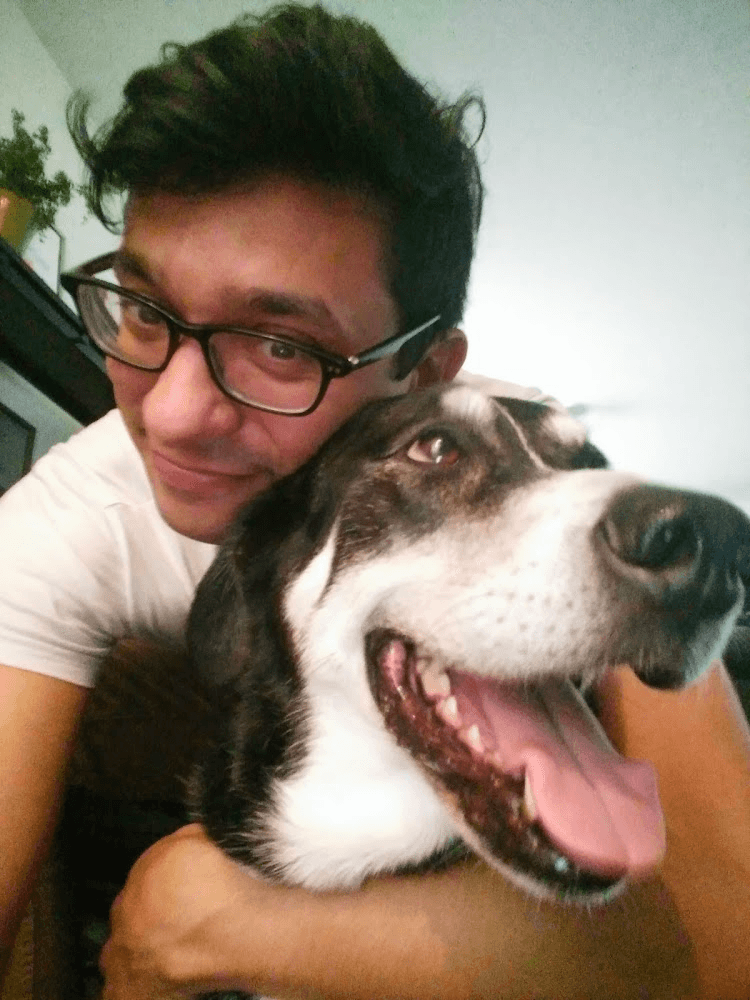
You’ve been vegan for four years. What made you originally go vegan?
I did it in phases. I was vegan without realising it. People think you have to make really big drastic changes, but I did it gradually. My partner has been vegetarian most of her life and is now vegan, but I’m far more militant than she is!
A couple of things happened. The main thing is, and this is true of anyone, as a meat eater you know the pain, the suffering and the death of it all, is wrong. But we have a cognitive dissonance between what we like to do, and what we know to be true. We try to resolve it in different ways but eventually the friction becomes too much.
I remember being on Mare Street in London, one night after a few too many beers. I had bought chicken wings and looking at my purchase, I thought “2 pounds for six wings. That’s 3 chickens''. There was such little ceremony, so little dignity. Killing these beings was so cheap. That was a bit of a lightbulb moment for me and I realised I couldn’t behave like that anymore. It had opened Pandora's box and set me on the path to vegetarianism. Having my dog, Bella, who is so obviously sentient and warm and kind made me realise that denying that was equatable to having a sort of mental blockage. Acknowledging her sentience was a basic tenet of being a rational person, an incontestable fact. So I said to myself, “you have to go all the way.”
Ultimately, I believe we all already know that animal agriculture is wrong at some level anyway, whether we’re ready to acknowledge it or not. We can’t really avoid that without being actively ignorant or deeply repressing that fact.
London has been crowned Vegan Capital of the world four years in a row now. Where’s your favourite place to eat?
Tough question. It depends on what you want to eat and your budget. Gauthier Soho has an amazing nine course vegan-tasting menu. The owner, Alexis Gauthier has a Michelin star. Loveshack in Hackney or E3 Vegan in Mile End are pretty great too.
What is one anti-vegan argument you absolutely can’t stand?
It’s that eating meat is “natural”. Saying something is natural is the worst argument about anything. It assumes that the previous state you were in was the correct state. But we’re always in flux, whether it is via culture, technology or even our own bodies. Was the printing press natural? Clothes? A pointy stick? The ‘natural’ argument is used to argue against homosexuality, transgender people. It’s fundamentally wrong for so many reasons.
The philosopher David Hume coined this the is/ought fallacy and vehemently argued against it saying that it would be impossible to make the leap from ‘is’ to ‘ought’ because ‘is’ is based on evidence (facts) and ‘ought’ is always a matter of reason (at best) and opinion or prejudice (at worst). Put simply, it’s a fallacy which argues that ‘What is’ somehow equates to ‘What should be’.
I think a lot of people equate what “was” to how things “should be” because it’s familiar and they find comfort in that. People say things like “natural” to normalise “what was” as an infallible, intrinsic and permanent good. Of course, it's something that is in flux and always has been in flux. On the other hand, we fear the unknown, the unfamiliar.
What is a piece of advice you'd give to someone looking to get involved in veganism?
If it seems too drastic, ease into it, phase it in, in ways where you just try to do your best rather than making a singular commitment all at once. That way, you may wake up in six months and not even realise you’re vegan.
Would you be kind enough to fill in the blanks -
If money, time, and skills were not an issue, I would be a movie director
My favourite famous vegan person is Joaquin Phoenix
Follow up question - Joaquin phoenix’s best performance is in The Master
Philosophy changed my life.
Veganism is just and necessary.
It’s been such a pleasure chatting with you Vik, let's add some bonus questions. Not to get too deep but what drives you and your work at VH, besides the obvious?
I can learn a lot of skills that I wouldn't anywhere else. I can practise my approaches and techniques in practical settings, all for a good cause. VH is open to all people and commitment is really important to them.
What do you most want to see happen this year?
I would love to see the banning of live exports in the UK, the closure of slaughterhouses, and a decrease of livestock production. Oh, and I would love to see OSD go live. I’d also like to understand how we can better quantify the progress of the movement.
Do you think Vegan Hacktivists are a powerful agent of change?
In the tech sphere, I think so. There’s lots of space for organisations like us with so many amazing vegans. There’s an increasing demand for veganism and businesses are responding to their consumers. People want to help but they don’t always know where to apply their skills. We need all sorts of people. People who know about the animal agriculture industry, “people '' people who can connect and product-led people who think holistically about how things go to market. No matter what job skills you bring to the table, your experience is crucial. If you're a vegan professional who wants to use your expertise to support our work, consider joining our volunteer team. Or, if you would like to broaden your impact, consider being part of Playground, a community of skilled volunteers looking to help with special projects for various organisations.
On that note... thanks Vik, it's been a pleasure!
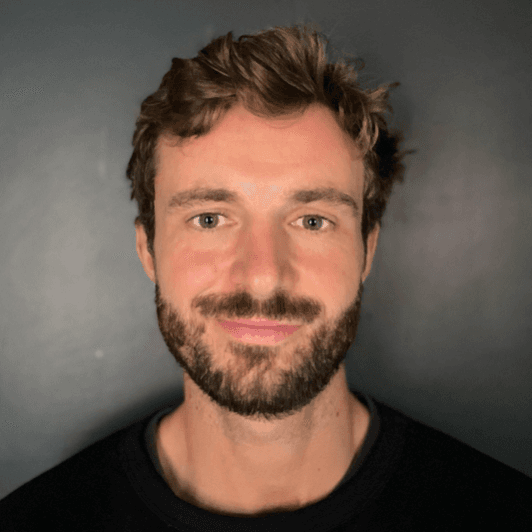
Leo Andre-Benezit, with a background in Biology and Environmental Technology, inevitably uncovered the oversized impact of animal agriculture on our planet. Through digital activism and the written word, he is determined to put an end to animal exploitation and the inconceivable suffering we cause our fellow creatures.

Leo Andre-Benezit, with a background in Biology and Environmental Technology, inevitably uncovered the oversized impact of animal agriculture on our planet. Through digital activism and the written word, he is determined to put an end to animal exploitation and the inconceivable suffering we cause our fellow creatures.
